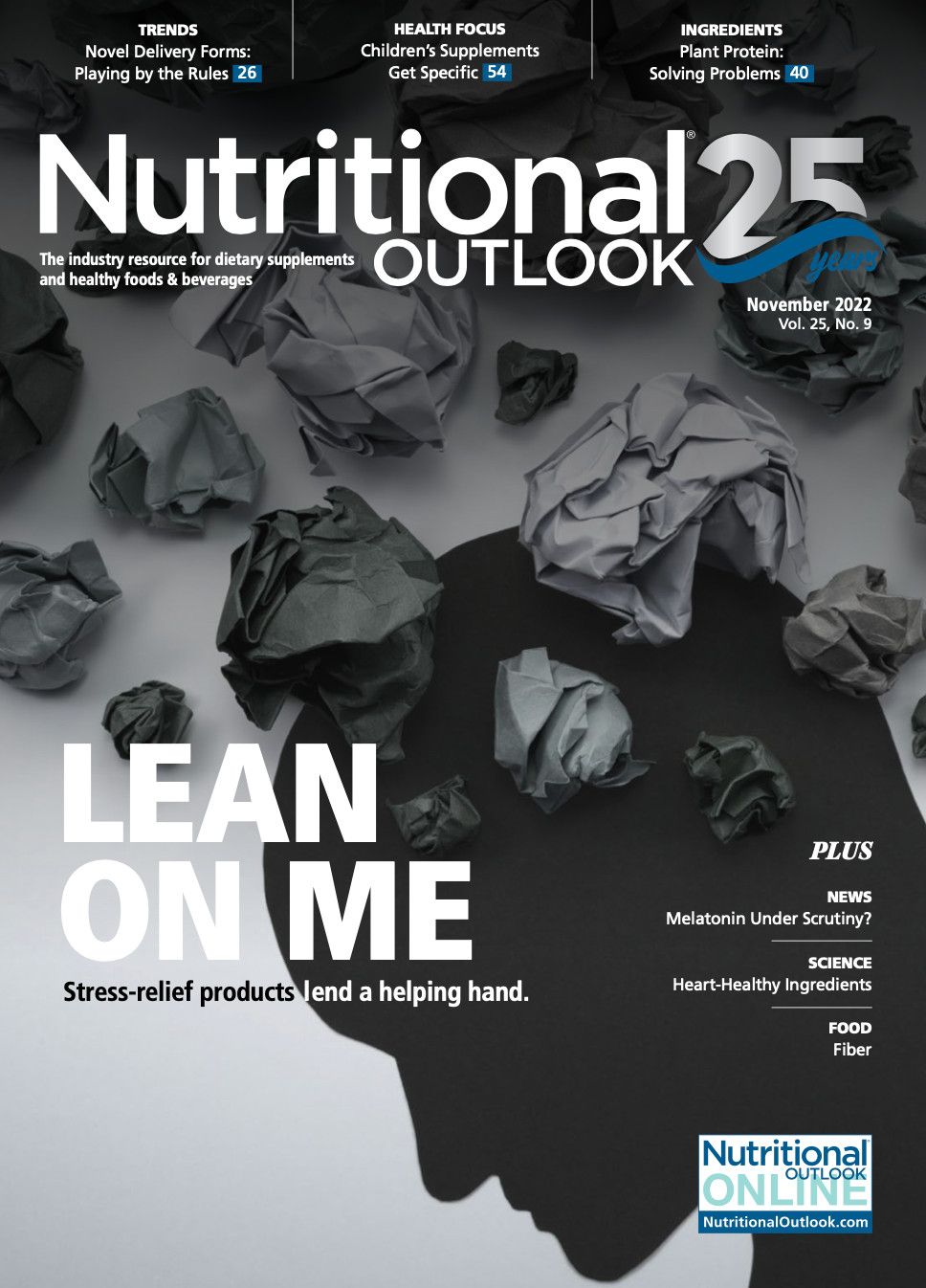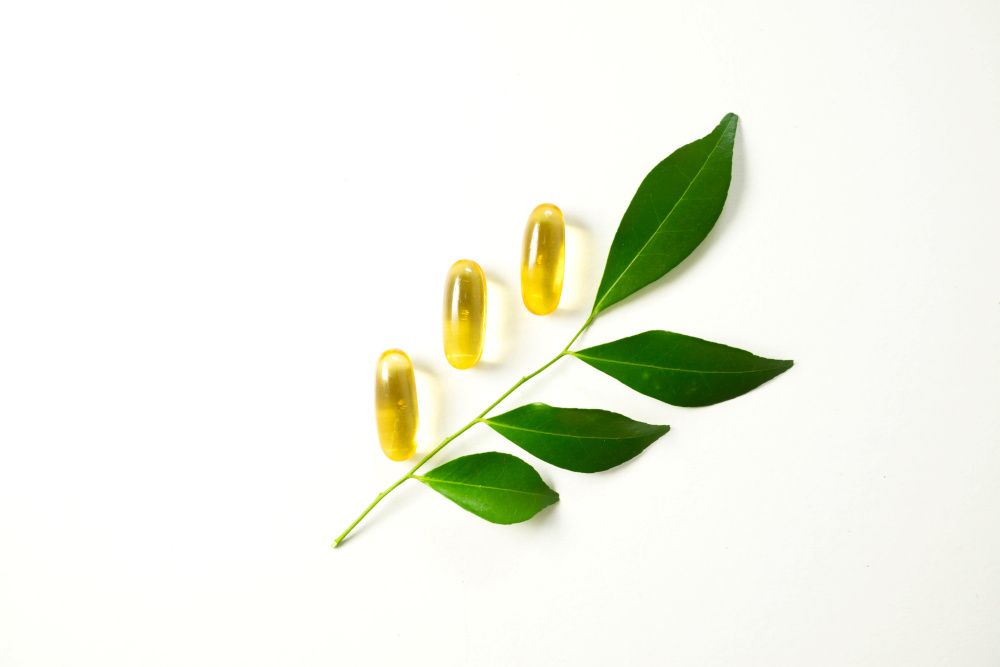Switching to a plant-based softgel?
Experts discuss the challenges and solutions you need to know about.
Consumers of over-the-counter (OTC) drugs and dietary supplement products experience a plethora of product formats today, including hard capsules, softgels, gummies, tablets, and others. Softgels, particularly, enjoy tremendous popularity in both the OTC and dietary supplement markets as consumers perceive them as an easy-to-swallow and fast-acting format1. Available in a wide range of sizes, shapes, and colors, softgels enable label claims such as “sugar-free,” “vegan,” and others, thus offering numerous opportunities for consumer-friendly product formulations and brand differentiation.
More formulators are turning to softgels as well. Not only do they enable the formulation of liquids in a solid dosage form and improve the bioavailability of pharmaceutical or nutraceutical ingredients, but they also allow for tailored release functionality, including immediate, controlled, or delayed release.
Trends in Softgels
The global softgel market is expected to grow at a compound annual growth rate (CAGR) of 7.81%, from $3.76 billion in 2022 to $5.48 billion in 20272. As consumers seek more plant-based alternatives, the market is shifting away from gelatin- to plant-based capsules. We see it happening as a higher number of new dietary supplement capsules with plant-based claims enter the market: The number of capsules making plant-based claims grew at a CAGR of 34% over the past five years. In contrast, the number of all new capsules grew at a CAGR of 14%.3
Traditionally, gelatin is a preferred shell-forming material enabling high-quality softgels and efficient manufacturing processes. However, gelatin can interact with the fill material, leading to crosslinking, which can subsequently impact the functionality of the softgel and its storage stability.
The low melting point of gelatin represents another limitation—for instance, when dealing with high-viscous fill formulations. Those fillings often need to be heated to achieve a manageable viscosity, but the temperature must be below 35°C to avoid problems with the gelatin shell and sealing.
Gelatin-free shell formers not only address consumers’ growing preference for plant-based OTC and dietary supplement products but also help overcome gelatin’s formulation and shelf-life challenges. Several gelatin-free shell formers are now on the market for use in softgels. Those include hydrocolloids sourced from marine plants like red and brown seaweed, agricultural plants like starches and pectin, and those made via fermentation, like gellan gum.
Plant-Based Challenges
During a recent webinar, we asked manufacturers what they perceive to be the most prominent challenges when formulating plant-based softgels. From this discussion, we learned that manufacturers perceive cost-in-use, sealing strength, encapsulation speed, and consistent functionality to be common challenges.
Softgel shells comprise a primary film former (sometimes combined with a secondary film former), plasticizer, water, and other additives, like colorants. Gelatin has traditionally been employed to produce softgels due to its optimal film mechanical properties, but modern plant-based alternatives offer comparable performance and are, therefore, gaining popularity.
While starch, as the sole film former in the softgel shell, has the advantage of being a relatively inexpensive raw material, it does not provide the required mechanical properties to withstand the softgel filling and sealing processes.4
To overcome the limitations of starch-only softgel shells, commercial formulations commonly contain a secondary film former, like carrageenan or other plant-based gums. When starch use is favored above all else, lower ratios of secondary film formers often do not provide the sufficient gel-film strength and elasticity to form consistent, quality softgels. Ultimately, this can lead to challenges as well as slow manufacturing speeds, lower yields, and significantly increase the final cost.
To form premium, high-quality plant-based softgels, the gel-film system must achieve an appropriate strength and elasticity to tolerate capsule filling, as well as melt and fuse together during sealing. It can be a challenge to find the right shell former, or combination of them, to ensure optimal performance and production efficiency, and to stand out in a crowded vegetarian softgel market.5
Plant-Based Solutions
Softgel manufacturers may choose from a variety of different starch types, including tapioca starch and different carrageenan materials. However, if the combination of film formers is not optimized, then less-than-ideal functionality may lead to limited manufacturing efficiency, such as fill capacities less than 70%, 2 RPM output, and quality issues, like leakers.
Manufacturers have found success with carrageenan-based systems mixed with modified starch. These systems have been in use at a commercial scale since the late 1990s, presenting good compromise between cost and quality—depending on the carrageenan and starch type used. Originally, modified corn starch was preferred for the softgel shell. However, in recent years, pea starch has gained popularity due to non-GMO claims.
Systems comprising specialized carrageenan offer improved strength and elasticity, specifically for the soft capsule application. In combination with suitable starches, this may lead to quality and performance attributes matching those of gelatin. For example, innovative plant-based softgel technology, like those derived from seaweed, allow manufacturers to form high-quality seals at high-fill capacities (up to 100%), even at fast manufacturing speeds (5+ RPM).
Plant-based softgels utilizing gellan gum—either as the primary shell former or in combination with starch—are relatively new to the market and can reportedly be used to produce quality softgels. While this is a promising indication, commercial-scale viability is still unproven, and gellan gums carry a high raw-material cost, which may be limiting for some manufacturers.
When it comes to strategies for switching from gelatin to plant-based softgels, the above considerations just scratch the surface. Therefore, it is critical that manufacturers partner with a provider of technology and shell-forming material that has expertise in formulating plant-based softgels. By collaborating with a high-quality supplier, manufacturers may find assistance with identifying the right ingredients for their formulations, as well as navigating the manufacturing and regulatory challenges that may arise when switching from gelatin to plant-based softgels.
About the Authors
Michael Baumann, PhD, studied chemistry at the Clausthal University of Technology (Germany) and holds a doctorate from the Institute for Technical Chemistry. He started his career at the Dow Chemical Company as an R&D leader in 2001, exploring and advancing polymer development for various industrial and pharmaceutical applications. In 2015, Baumann became pharma field marketing manager, EMEA, for Dow Pharma Solutions. Following the 2018-2019 integration of Dow Pharma Solutions into DuPont Nutrition & Bioscience, he became global strategic marketing manager of immediate-release pharmaceutical dosage forms at DuPont. Following the merger of DuPont N&B with IFF, he now serves as the global strategic marketing manager for dietary supplements within the Pharma Solutions division of IFF.
Benjamin Roscoe studied biomedical engineering at Penn State University and holds a Master of Science from Drexel University. He started his career at FMC Health & Nutrition in 2011, helping customers develop new products in dietary supplements and pharmaceutical applications. In 2016, Roscoe became research leader for dietary supplements with a specialty in softgels, focusing on technical service and new product development. When FMC H&N merged with DuPont N&B in 2018, he became application development and innovation manager at DuPont. Following the merger of DuPont N&B with IFF, he now serves as the application development and innovation manager for dietary supplements and global subject matter expert in softgels within the Pharma Solutions division at IFF.
References
- Jones WJ et al. “Softgels: Consumer perceptions and market impact relative to other oral dosage forms.” Advances in Therapy, vol. 17, no. 5 (September-October 2000): 213-221
- 360iResearch report. “Softgel Capsules Market Research Report by Type (Gelatin and Non-Animal), Application, Distribution Channel, Region (Americas, Asia-Pacific, and Europe, Middle East & Africa) – Global Forecast to 2027 – Cumulative Impact of COVID-19.” Posted online July 2022.
- Data from Mintel Global New Products Database (GNPD): CPG and FMC. Retrieved July 7, 2022.
- Seok YO et al. “Physical and mechanical properties of plant-derived soft-shell capsules formulated with hydroxypropyl starches from different botanical sources.” Polymer Testing, vol. 91 (November 2020)
- Gullapalli RP et al. “Gelatin and non-gelatin capsule dosage forms.” Journal of Pharmaceutical Sciences, vol. 106, no. 6 (June 2017): 1453-1465

Prinova acquires Aplinova to further increase its footprint in Latin America
April 7th 2025Prinova has recently announced the acquisition of Brazilian ingredients distributor Aplinova, which is a provider of specialty ingredients for a range of market segments that include food, beverage, supplements, and personal care.





















